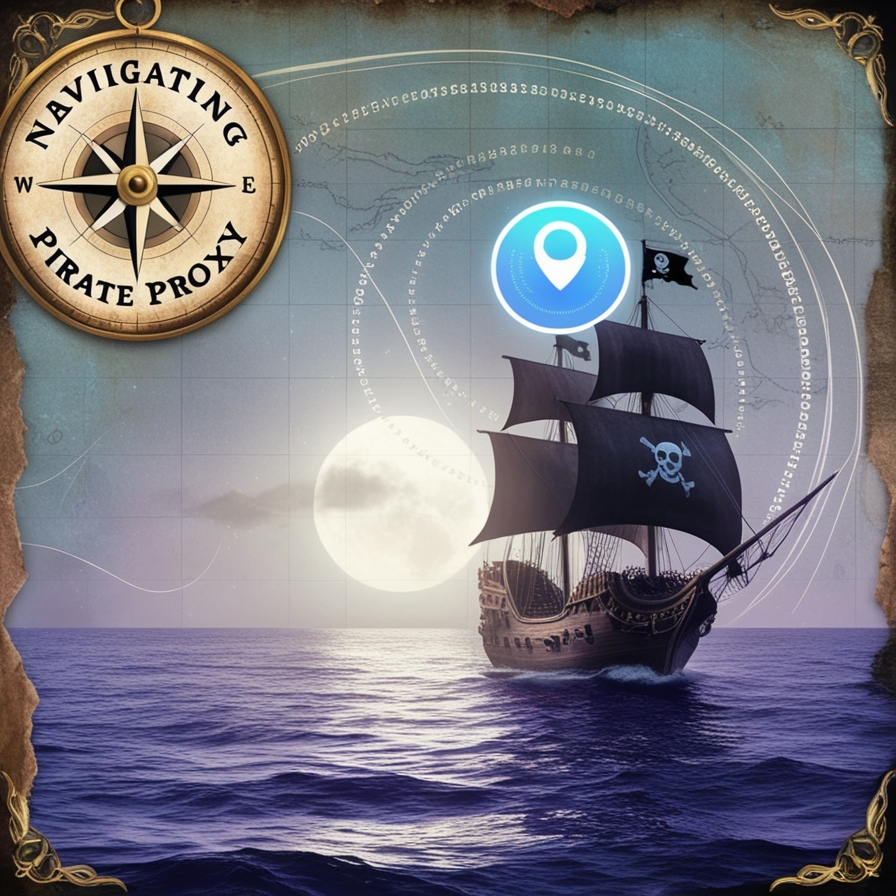Introduction
In the ever-evolving digital landscape, online accessibility and privacy have emerged as significant concerns for internet users around the arena. One tool that regularly emerges in conversations approximately bypassing regulations and ensuring privacy is the Pirate Proxy. This tool is often associated with getting access to limited or place-locked content. However, pirate proxy services also enhance questions about legality, protection, and the ethical obstacles of online hobbies.
In this article, we’ll explore what Pirate Proxy is, the way it works, its prison and moral considerations, and the implications for users seeking privacy and anonymity online. We’ll additionally cope with key topics, which include proxy servers, net protection, and the capacity risks associated with the usage of such offerings.
Table of Contents
What is Pirate Proxy?
A pirate proxy is essentially a reflect website or intermediary that permits users to get right of entry to content material, typically from web sites like The Pirate Bay, which can be constrained or blocked in certain regions due to copyright worries. Pirate Proxy websites act as an alternate direction to bypass regulations imposed by internet provider companies (ISPs) or governments. They function by means of hiding the consumer’s IP address, making it appear as though the user is having access to the content material from a one-of-a-kind area.
While pirate proxy servers are more often than not used to get entry to pirated content, in addition they increase valid questions about freedom of information and get right of entry to content that may be unfairly restricted.
How Does Pirate Proxy Work?
To recognize the mechanics of pirate proxy, it’s important to first draw close to how a proxy server works. A proxy server acts as a gateway between a consumer and the net, efficaciously protecting the user’s real IP address. When you use a pirate proxy, your connection request is sent to the proxy server, which then forwards the request to the real internet site, retrieves the data, and sends it back to you.
Key Features of Pirate Proxy Servers:
Anonymity: Pirate Proxy servers mask the user’s IP address, making it more difficult to track the user’s activities online.
Bypassing Restrictions: These proxies allow customers to bypass geographical restrictions and access content material blocked by their location.
Data Encryption: Some Pirate Proxy offerings offer encryption capabilities, adding a layer of protection by way of encrypting site visitors between the consumer and the proxy server.

Legal and ethical considerations
The use of pirate proxy services occupies a gray region in terms of legality. While proxy servers themselves are felony and extensively used for legitimate purposes along with securing privacy or coping with content delivery networks (CDNs), pirate proxy services are frequently related to illegal activities such as gaining access to copyrighted material without proper authorization.
Copyright Infringement
One of the number one concerns with pirate proxy services is their affiliation with pirated content. Many customers turn to pirate proxy sites to get admission to torrent documents or media, which can be blanketed through copyright regulation. While a few international locations have strict legal guidelines against such activity, others are more lenient, leaving customers in a precarious prison situation.
Ethical Dilemmas
There is also a moral debate surrounding using pirate proxy offerings. On one hand, this equipment provides access to information and content material that may be unjustly limited with the aid of governments or businesses. On the other hand, they may be often used to bypass copyright legal guidelines, undermining the innovative efforts of artists, filmmakers, and content material creators.
The Risks of Using Pirate Proxy
While pirate proxy services offer certain conveniences, they arrive with good-sized dangers, especially in terms of privacy and protection.
Security Threats
One of the most important risks associated with pirate proxy offerings is the potential for security breaches. Many pirate proxy websites are not stable, leaving customers vulnerable to malware, viruses, and phishing attacks. Hackers may also take advantage of these unsecured connections to steal private information or infect users’ gadgets.
Data Leaks
Using pirate proxy services that do not encrypt your visitors can cause statistics leaks. Your net interest, consisting of your browsing records and personal details, can be uncovered to 1/3 parties, consisting of cybercriminals.
Legal Repercussions
In regions with strict copyright enforcement, using pirate proxy sites to access unlawful content can lead to severe legal outcomes. This could include fines or even imprisonment, depending on the U.S.’s copyright laws.

Are There Safe Alternatives?
For users involved in approximately privacy or get admission to restrained content, there are safer options to Pirate Proxy. Here are a few alternatives:
Virtual Private Network (VPN)
A VPN is one of the most effective approaches to steadying your online sports at the same time as gaining access to confined content material. Unlike pirate proxy servers, VPNs encrypt all your net traffic, offering a far better level of safety and privacy. VPN offerings are widely used for valid functions, such as securing touchy communications and shielding in opposition to cyber threats.
Tor Browser
The Tor Browser is every other choice for users searching out anonymity online. By routing your traffic through multiple nodes in a decentralized network, Tor makes it almost impossible to hint your online hobby lower back to you. However, like Pirate Proxy, Tor is occasionally related to illegal activities, even though it has valid usesour traffic through multiple nodes in a decentralized network, Tor makes it almost impossible to hint your online hobby lower back to you. for protecting privateness.
Legitimate streaming services
Many media companies now provide legitimate streaming offerings for numerous content materials, decreasing the need for customers to resort to piracy. Services like Netflix, Hulu, Amazon Prime Video, and others offer legal admission to a wide variety of leisure alternatives.
How to Use Pirate Proxy Safely (If Necessary)
If users nonetheless want to get right of entry to a pirate proxy, it’s critical to take steps to shield their privacy and protection:
Use a VPN: Before having access to a pirate proxy, users should constantly connect to a VPN to encrypt their traffic and shield their identity.
Enable HTTPS: Ensure the Pirate Proxy website is using HTTPS encryption to steady the connection between your browser and the web page.
Be Cautious with Downloads: Avoid downloading suspicious documents or software from pirate proxy web sites, as these can comprise malware.
Use Antivirus Software: Always have updated antivirus software program jogging to shield against potential threats even as using Pirate Proxy offerings.
Also read: TreeLeftBig.shop: A Comprehensive Guide to Eco-Friendly Shopping
Conclusion
The Pirate Proxy stays a popular device for bypassing restrictions and gaining access to blocked content material online. While it gives positive conveniences in terms of accessibility, the capacity risks in terms of security, legality, and ethics can’t be unnoticed. With the upward thrust of greater stable and legitimate options, inclusive of VPNs and subscription-primarily based streaming services, it’s feasible to enjoy more freedom on the net without the risks that include the usage of pirate proxy services.
Ultimately, the choice to apply pirate proxy services should be made with warning, considering the legal implications and the potential threats to non-public safety. By staying informed and taking the essential precautions, users can navigate the virtual international greater properly and responsibly.

